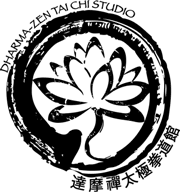Through many years of scientific and medical research, we know that Tai Chi and Qi Gong (Chi Kung) exercise can definitely benefit health. Here is a recent research article called “Tai Chi Helps Fight Against Diabetes” that has “Western style” evidence: “The dance-like exercise Tai Chi, practised by tens of millions of people in China and around the world, can help curb symptoms of type 2 diabetes, say a pair of studies released on Tuesday. In separate experiments conducted in Australia and Taiwan, diabetes patients who performed Tai Chi for a few hours a week over a three-month period showed significant health improvement compared to control groups. Other forms of moderate exercise have been shown to help keep the disease in check, the researchers point out. ‘These Chinese exercises may be easier to learn than gym-based exercises and do not require any complicated or expensive equipment,’ conclude the University of Queensland team, led by Wendy Brown.” (April 1, 2008, at http://www.straitstimes.com/Latest+News/Tech+%2526+Science/STIStory_222610.html)http://www.damazen.com/pages/articles.html
Here is also one real example of Qi Gong’s benefit from Taiwan. Dr Huang Yuan-Hui is an Attending Pediatric Surgeon at Hsin Chu General Hospital as well as the Chief of the Nutrition Department. He underwent intense training, strictly adhering only to internal medicine and surgery, in order to accomplished+ many corrections of extreme deformity. For his work, his department got a lot of praise from all circles. But just as he started to feel complacent he suddenly he went from being a medical doctor to becoming a patient. He developed “Palindromic rheumatism” (one kind of immune disease where all the joints in the body joints have varying levels of inflammation.) One day he walked to a meeting and, as he prepared to walk back, he suddenly couldn’t stand up. He felt such sharp pain in his knees that he was sent to the emergency ward where they inject steroids and told him to lie down for the rest of the day. He asked for help from many different disciplines: Orthopaedics, Rehabilitation, Rheumatology, Allergy, and Immunology (RAI), Traditional Chinese Medicine and Acupuncture to name a few. But they were only able to temporarily quell the pain, which quickly returned as soon as the medication wore off. After trying a whole bunch of different treatments Dr Huang began to think he would just have to suffer from joint pain for the rest of his life. Then one of his colleagues recommended he try Qi Gong to release the pain. Fluctuating between belief and suspicion for two months he practiced anyway. And, amazingly, he felt an obvious reduction in his rheumatism’s frequency and pain. But since he was a devout believer in science he deliberately stopped practice the Qi Gong so he could count the frequency of reoccurrence in pain and inflammation. He consistently found that three days after he stopped practicing the symptoms returned, but when he started to practice again it immediately got better. After repeating this experiment repeatedly for six month he was totally convinced. So Western medicine and Traditional Chinese Medicine both were unable to completely relieve his pain. Rather he found succour from an unexpected discipline, Qi Gong, and got his health back again.
He has now practiced this Qi Gong for twelve years and discovered additional benefits. Besides improving his blood circulation and cultivating a healthy heart he finds himself better able to control his sentiments, especially his mindfulness when he is in danger of losing his temper. “From being a medical doctor to becoming a patient then being a medical doctor again, I underwent an experience of how important it is for body and mind to be balanced.” Dr Huang Yuan-Hui said. (2008/03/09, from a Mandarin Chinese newspaper (UDN) website at http://mag.udn.com/mag/life/storypage.jsp?f_MAIN_ID=211&f_SUB_ID=2152&f_ART_ID=114571).
After teaching Tai Chi and Qi gong classes in Calgary for seven years, I can see that Tai Chi is more popular than Qi Gong. This is mostly because people have heard of Tai Chi before, even if they have never practiced it. Only a few people have ever heard of Qi Gong, so many people have no idea what Qi Gong is.
Usually I teach both Tai Chi and Qi Gong in one class so my students can practice both. At the end of many of my 5 week courses, most of my students will tell me they enjoyed practicing Qi Gong more than the Tai Chi because the Tai Chi has too many movements to remember and is more complicated. From my practical teaching experience I find that if people who are over sixty years old want to start practice Tai Chi, it is a big challenge for them because of their natural decline in memory function and physical condition (especially decreasing muscle mass and balance). So thinking that Tai Chi Chu’an is so slow that only seniors should practice it false. I often encourage my students who are having trouble practicing Tai Chi to just try to remember the Qi Gong movements. Then they can practice it at home. Qi Gong has many of the same benefits as Tai Chi.
Last, I would like to say, if maybe Tai Chi and Qi Gong are not your style, still doing any exercise is better than doing nothing. Just think about the research showing that “Exercise ‘Reduces the Risk Of Dementia.’” The Telegraph UK wrote; “Having a healthy body leads to a healthier mind, reducing the risk of clinical depression and dementia in later life, new research has showed. Scientists at Bristol University have found that physical exercise can reduce the risk of cognitive impairment, dementia or Alzheimer’s in older people by between 30 and 40 per cent.” (07/12/2007 from http://www.telegraph.co.uk/news/main.jhtml?xml=/news/2007/12/07/ndementia107.xml).
How do you want to live your life, especially your last decades?
Danny
Below are some interesting Tai Chi puppet shows from Taiwan (in Taiwanese):
http://www.youtube.com/watch?v=5oQNktk3gJU&feature=related
http://www.youtube.com/watch?v=_s8iLwmIYB8&feature=related
